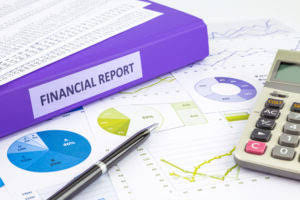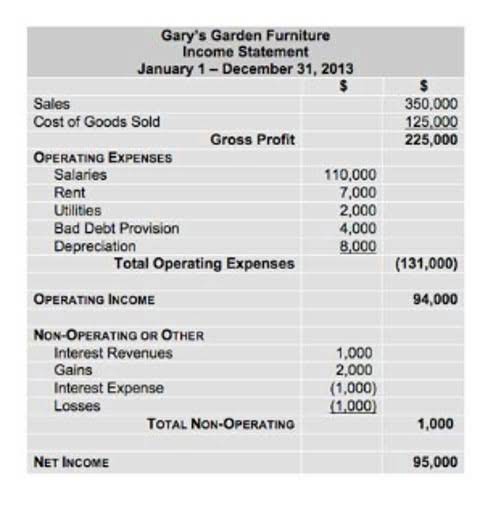
It aims to collect and track financial data involving the company’s daily operations. Compared to accounting, bookkeeping does not include any analysis, budgeting, or forecasting. Business accounting is the process of collecting and analyzing a company’s financial information. Business owners may assemble an in-house accounting team, hire an accountant or handle accounting on their own.

Accountants
To help you get started, here are some of the best accounting software solutions to consider. Accounting ratios help uncover difficult-to-find conditions and trends by inspecting the ratio’s components. Accountants convey this data to a wide range of users, including the company’s management, shareholders, and creditors.
How do you become an accountant?
Massey and Company CPA is a boutique tax and accounting firm serving individuals and small businesses in Atlanta, Chicago and throughout the country. Deferred revenue arises when customers prepay for services to be delivered in the future, recorded as a liability on the balance sheet. Accrued revenue, on the other hand, is logged as earned income once services are fulfilled, even if payment hasn’t been received.
Methods of Accounting
Management accounting, therefore, serves the information needs of the insiders, e.g., owners, managers and employees. Generally speaking, however, attention to detail is a key component in accountancy, since accountants must be able to diagnose and correct subtle errors or discrepancies in a company’s accounts. The ability to think logically bookkeeping is also essential, to help with problem-solving. Mathematical skills are helpful but are less important than in previous generations due to the wide availability of computers and calculators. The Securities and Exchange Commission has an entire financial reporting manual outlining the reporting requirements of public companies.

Companies will use payroll processing software to streamline or outsource the task entirely. In many small businesses, a payroll manager is in charge of overseeing the payroll. Financial advisors can use the financial data from business accounting to help small business owners make important financial decisions about the future and day-to-day operations. Business accounting is integral to the operation of small- and medium-sized businesses. This type of accounting manages a company’s daily financial activity while setting long-term financial goals. From forecasting to invoicing, business accounting works with bigger decision-making and granular levels of operations through financial tracking, analysis, recordkeeping, budgeting, and more.
The best accounting platforms integrate seamlessly with other business processes, including purchase orders, employee expenses, travel management, inventory, and payroll. This integration creates a single source of truth for all financial data, making it easier to track and manage your company’s finances across departments. Businesses rely on accounting data to make better decisions faster, create budgets, forecast performance, and evaluate their financial health.

Accounting financial statements
- The financial statements used in accounting are a concise summary of financial transactions over an accounting period, summarizing a company’s operations, financial position, and cash flows.
- In some cases, we earn commissions when sales are made through our referrals.
- Businesses rely on accounting data to make better decisions faster, create budgets, forecast performance, and evaluate their financial health.
- Accounting software helps you send invoices, reconcile bank transactions and pay vendors and employees.
- An accountant is a professional with a bachelor’s degree who provides financial advice, tax planning and bookkeeping services.
- Tax accountants minimize tax liability and keep you compliant with the IRS.
- Many small businesses use a cloud-based inventory management system that provides real-time data when needed.
SaaS accounting is the financial management and bookkeeping specifically designed for software as a service businesses, enabling them to effectively handle Insurance Accounting their unique financial needs. Annual Recurring Revenue (ARR) indicates the scale of a SaaS business and tracks its growth over time. It is calculated by multiplying the MRR by twelve, providing a long-term view of revenue stability and growth.
- One of the most important functions of accounting is to provide accurate and timely financial data that can guide decision-making.
- It is a means through which information about a business entity is communicated.
- In addition to being relevant and reliable, accounting information should be comparable and consistent.
- Grasping the distinct challenges and requirements of SaaS accounting allows businesses to manage their financial health more effectively, ensuring long-term success.
- Local professional bodies in England merged to form the Institute of Chartered Accountants in England and Wales in 1880.
- Business accounting differs from other types of accounting in several ways.
Services
- Types of accountants include tax accountants, financial accountants, public accountants, government accountants and more.
- The history of accounting has been around almost as long as money itself.
- The Securities and Exchange Commission has an entire financial reporting manual outlining the reporting requirements of public companies.
- Learn more about the features of this software by reading our complete Xero review.
- It communicates the monetary activities of an organisation to buyers, regulators, and bosses.
- Source documents include cash memo, purchase invoices, sales invoices, property transfer papers and written agreements, etc.
Financial reports show which business areas are performing well and which need improvement. For instance, a business owner might use accounting data to determine whether to invest in new equipment or expand their operations. Put another way, it’s possible to do bookkeeping without accounting, but it’s impossible to do accounting definition accounting without bookkeeping. Similarly, professional accountants perform both bookkeeping and accounting tasks, but professional bookkeepers focus on bookkeeping alone. These accounting branches have been developed as a result of rapid economic development and technological improvements, that increased the company’s scale of operations. Due to this very reason, the management functions has become complicated and resulted in the development of branches.
